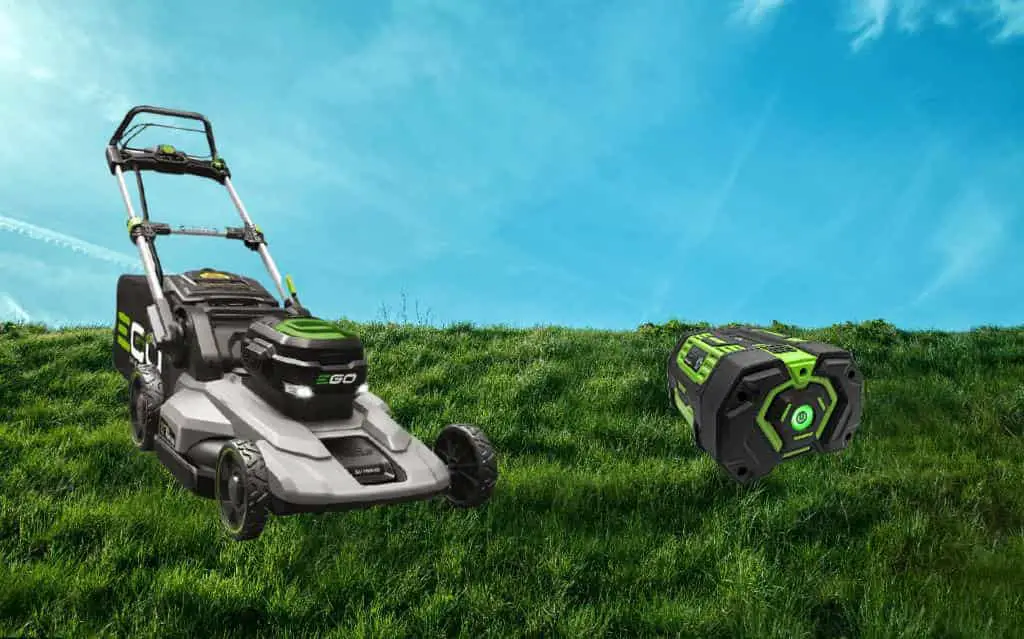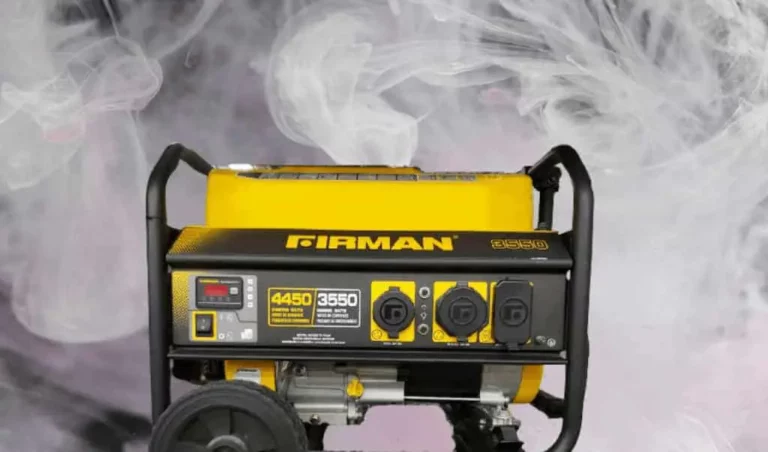Are Lawn Mower Batteries Deep Cycle? What You Must Know

You’ve been running your electric lawn mower for a few seasons now, and you’re thinking it may be time to replace your battery. But somebody said your lawn mower battery is “deep cycle,” and you’re not sure what that means. Are lawn mower batteries deep cycle?
Lawn mower batteries are deep cycle. These power sources are intended to be periodically drained and then recharged through an adaptor. Most lawn mower batteries are lead-acid, which means they are corrosive and should be charged and stored in dry locations.
This article will cover everything you must know about lawn mower batteries. I’ll go through the materials they employ and the many kinds of deep cycle batteries compatible with your device.
What Type of Battery Is in a Lawn Mower?
Internal combustion engines that start via tiny rechargeable batteries power electric lawn mowers, lawn tractors, and other equipment. Lithium and lead-acid batteries are the two most common kinds of starter batteries.
Lithium batteries include Battery Management Systems (BMS), which make their usage safer since the BMS protects the battery from overcharge, short-circuit, and other hazards.
These batteries may also be recharged using onboard alternators and traditional lead-acid battery chargers. Unfortunately, they are incompatible with smart lead-acid battery chargers, which may harm the BMS system.
Most manufacturers anticipate lithium-ion batteries to have a minimum lifetime of 5 years or at least 2,000 charging cycles.
Among the advantages of lithium batteries are their low cost and simple construction, enabling them to be readily troubleshot for virtually any issue. But, on the other hand, they need regular maintenance and produce explosive hydrogen gas while charging.
Lead-acid batteries are much heavier than lithium batteries. However, as starting batteries, they are considerably more dependable and less expensive than their lithium counterparts.
Lead-acid batteries have a regular life of 500-1000 cycles; however, they do not include a BMS.
Additionally, these batteries have the following advantages:
- Capacity for large current
- Tolerant of abuse
- Numerous sizes and specifications are available
And some drawbacks are:
- Slow charging
- Corrosive electrolyte
- Lead is not eco-friendly
- Acid must be disposed of mindfully
What Materials Are Used?
Most lawn mower batteries are lead-acid, which generate energy via cells with plates immersed in an electrolyte solution. Unfortunately, this kind of battery loses charge with time and will rust quickly.
On the other hand, certain batteries have calcium, which does not drain as fast and is more resistant to corrosion than lead-acid batteries. Calcium batteries are especially well-suited for lawn tractors due to their increased resistance to vibration.
Additionally, some batteries combine glass mat and gel technologies, which employ a dry substance rather than the liquid found in lead-acid batteries. This construction eliminates the possibility of dangerous leaks if the battery tips over or the case breaks.
Also, this means that the battery can be mounted on its side or upside down since nothing will leak. Plus, these batteries charge about five times as quickly as lead-acid batteries.
They are often referred to as AGM batteries. These energy sources are resistant to shock, temperature changes, and other forms of vibration. Additionally, they have a low self-discharge rate, making them ideal for long-term storage.
AGM batteries, on the other hand, are:
- Costlier than flooded lead-acid batteries
- Susceptible to irreversible harm if charged improperly
- Harder to diagnose when there is an issue
Starter Batteries vs. Deep Cycle Batteries in Lawn Mowers
Lead-acid batteries, sometimes referred to as starter batteries, are found in virtually every vehicle. While starter batteries are often in commercial automobiles, they can power a lawn mower if the manufacturer specifies.
These batteries provide a big burst of energy at once. Following that, the alternator kicks in and begins charging the battery.
As a result, these batteries can last their whole lives without losing more than 20% of their total capacity.
Additionally, since they are never entirely discharged, they often have a longer life than deep-cycle batteries.
Unlike starter batteries, deep-cycle batteries provide a continuous supply of power over an extended period. While deep cycle batteries are also made of lead-acid, they may be repeatedly discharged without causing harm to the battery.
In contrast, continuously draining a starter battery significantly reduces its useful life.
Most vehicles cannot run on deep cycle batteries. But these batteries are often employed for devices that need a constant power supply, such as lawn mowers.
In brief, conventional batteries provide bursts of energy upon activation. In contrast, deep cycle batteries’ constant power levels allow the machine to operate more smoothly for the entire project.
Can I Use a Car Battery in a Riding Lawn Mower?
You can use a car battery in a riding lawn mower if it fits. Each battery has a specific Cold Cranking Ampere rating, the bare minimum for starting an engine. So if you can find a vehicle battery with comparable specs, it will almost definitely be able to power the lawnmower.
However, you may encounter certain difficulties.
While a lawn mower’s battery is similar to that of a car, it is often smaller in size. This difference will make it harder to find a matching piece.
Additionally, the necessary CCA of a lawnmower battery is much smaller.
Despite the size difference between a lawn mower and vehicle battery, their build is almost identical, except for their rechargeability.
The CCA Rating Must Match
Because larger engines are more difficult to activate, battery power is an essential element to consider when using a car battery in your mower.
Batteries have a CCA (cold-cranking amps) specification. This number is a unit of measurement that shows the amount of current a battery can produce in 30 seconds.
Choosing a battery with a low CCA rating may result in the engine not starting at all or overtax the battery, causing it to wear out quicker.
On the other hand, a battery with a greater CCA rating will start a smaller engine without difficulty but will provide no further advantages.
Choosing the correct power rating for your battery is critical to the continued operation of your lawn mower.
How Many Years Does a Deep Cycle Battery Last in a Lawn Mower?
Most deep cycle batteries have a life expectancy of 3-5 years when properly maintained and charged. Additionally, you are responsible for ensuring that your battery does not get damaged during machine use, guaranteeing that it lasts for years.
You are unlikely to use your lawn mower every day. Idleness may significantly shorten the life of deep cycle batteries.
If seasonal usage is expected, I recommend the following:
- Before storage, fully charge the battery.
- Disconnect the battery’s electrical connections, including any series or parallel connectors.
- Keep the battery as cool as possible. However, avoid storing in an area that is regularly below 32 °F (0 °C) because the lower the temperature, the less self-discharge.
- Boost every two months while not in use.
If you treat your battery correctly, it may last up to seven years, which would save money on replacements.
I’ve included some suggestions below to assist you in maintaining and preserving your lawn mower’s battery.
How To Maintain Deep Cycle Batteries
When working with deep cycle batteries, the following basic maintenance practices may be beneficial:
- Always use a charger and battery pack system that are compatible. Chargers that are of different brands may create issues.
- Always charge to 100%. It would be best if you charged your battery each day after usage to avoid harming the plates.
- Avoid opportunity charging. This happens when you connect your battery and remove it when you need it without letting it complete a charging cycle.
- When not in use, keep your battery fully charged and check it often to see whether it has drained.
- To avoid damage, avoid storing the batteries in cold conditions and keep them in a dry location.
- Slowly charge your battery. Charge your battery during a time of day when few individuals need access to the outlet.
- Check the battery with a multimeter. Battery testing regularly is a necessary preventative maintenance procedure.
Final Thoughts
Finding a suitable replacement for most gardening equipment may be a difficult job. This is why you should take advantage of your lawn mower’s charging capabilities, but with caution.
Suppose your deep cycle battery is no longer performing as expected and has to be replaced. In that case, you should watch Living With Era’s video on how to choose the right battery for you:





